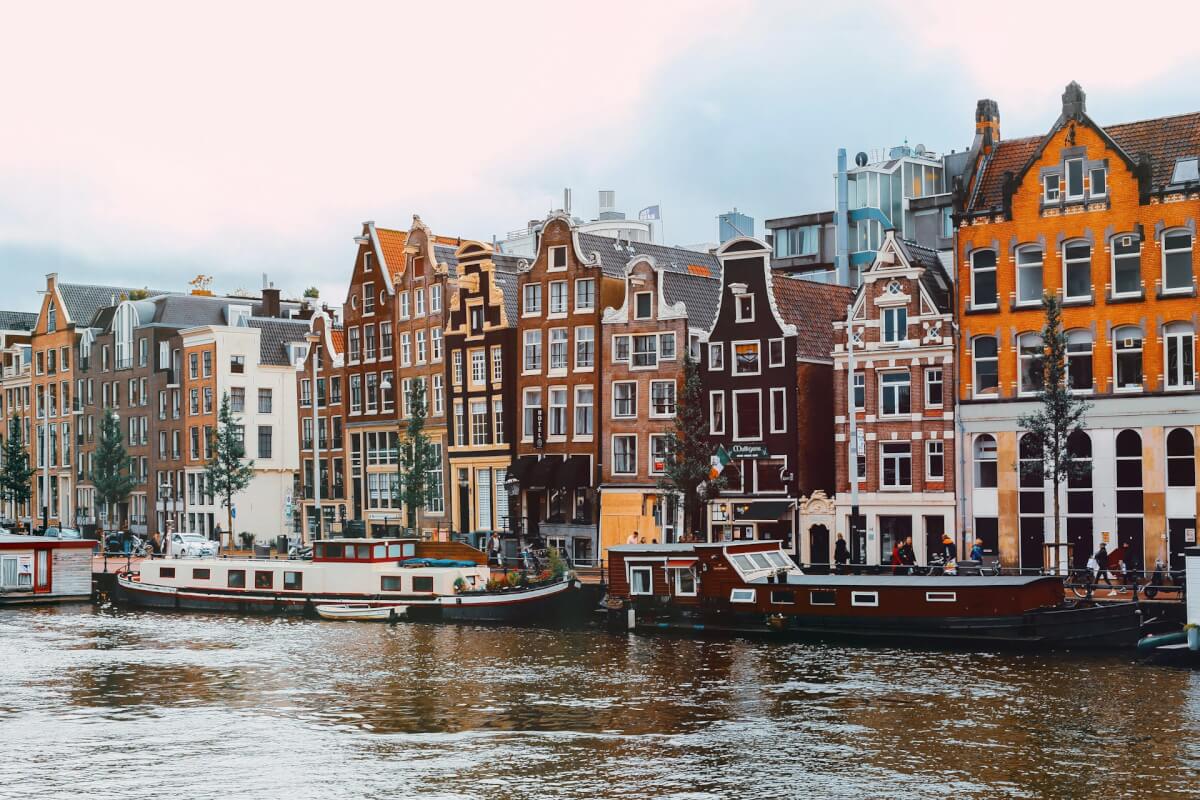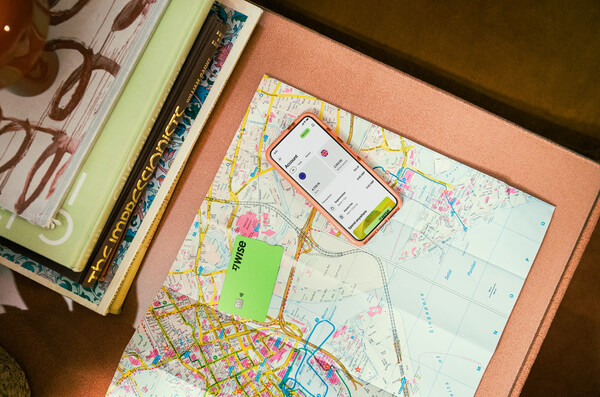Money in the Netherlands: Banks, ATMs, cards & currency exchange
Whether you’re visiting Holland to take in their infamous tulips or you’re simply there on business, The Netherlands is an important European economic hub. If...

This is intended to serve as a general guide. Always check with official sources for the latest government and health advice.
Opting for tap water is often the most eco-friendly and cost-effective way to stay hydrated while traveling. But when you're in a new country, knowing if the tap water is safe is crucial to avoid any unexpected health risks. If you're headed to the Netherlands, you're likely wondering: is its tap water safe to drink?
The quick answer is yes. This guide will clearly explain why the Netherlands’ tap water is safe, and detail its quality to help you prepare for your trip. We’ll also introduce the Wise card, a useful travel companion to help you save on spending during your time there.
| Table of contents |
|---|
Yes, tap water in the Netherlands is generally safe to drink directly from the tap throughout the country according to the National Institute for Public Health and the Environment.¹ It is regulated by the Drinking Water Act (Drinkwaterwet) and Drinking Water Decree (Drinkwaterbesluit), adhering to the EU Water Framework Directive, with provinces and water boards managing protected areas and regional dossiers to safeguard water quality.2
While some residents may still choose bottled water or filters, this is typically for personal taste or preference rather than a concern about safety, as the water is subject to rigorous oversight.
The primary official government authorities responsible for tap water quality and regulation include the Ministry of Infrastructure and Water Management and the National Institute for Public Health and the Environment (RIVM).1,3 The water supply is managed by ten regional water companies, and the quality is continuously and frequently monitored with daily checks for key parameters.3
The legal framework, including the Drinking Water Act and the Drinking Water Decree, transposes EU directives and sets strict quality requirements for over 100 parameters, including emerging contaminants like PFAS.5
The Netherlands' tap water supply comes predominantly from groundwater, which accounts for approximately 60% of the total supply. The remaining water is sourced from surface water (rivers and lakes).4 This extensive multi-barrier treatment process is a key reason for the water's quality, which allows for minimal or even absent chlorination in the distribution network.
The water's mineral content and hardness vary by region. In Amsterdam and the surrounding areas, Waternet supplies soft tap water with an average hardness of 7.8 degrees German hardness (dH), which is considered soft water. This means the water contains low levels of calcium and magnesium, contributing to its softness and reducing the formation of limescale in household appliances.6
The general taste profile is described as neutral and clean, with a chlorine taste rarely noticeable. This is because of the extensive treatment at the source and the subsequent minimal or absent chlorination.
Staying hydrated is key to a great trip, and so is managing your travel budget wisely in the Netherlands. The Wise card is a simple way to save when you're spending internationally, be it on bottled water, food or shopping. You can spend in 150+ countries, including the Netherlands, at mid-market rate — basically the rate you see on Google. With no foreign transaction fees and low, transparent pricing, Wise usually gives you the best value for your money.

Simply create a Wise account for free, order a card and top-up to get started. Having a physical Wise card allows you to make chip and pin payments, as well as make some free ATM withdrawals each month for when you're in the Netherlands. You can get digital cards and add to your Google or Apple Pay wallet for instant use. Spend directly with the Wise account and let auto-conversion do the trick or convert in advance to EUR. You can hold and exchange 40+ currencies in your Wise account and spend the currencies you hold for free.
Wherever your travel takes you, the Wise card makes spending money abroad cheaper and easier.
This general advice does not take into account your objectives, financial circumstances or needs and you should consider if it is appropriate for you.
Please see Terms of Use and product availability for your region or visit Wise Fees & Pricing for the most up to date pricing and fee information.
No, boiling tap water in the Netherlands is not necessary. It is generally safe to drink directly from the tap, as it is subject to strict regulations that ensure its safety.1
The taste and quality of water can vary by region due to different water sources and mineral content. Water is generally harder in regions with limestone and clay geology, which can influence its mineral taste.6
Yes, the ice served in restaurants and bars is generally safe to consume, as it is made from the public water supply that is deemed safe to drink throughout the country.1
Some people in the Netherlands use water filters primarily for personal taste preference due to a noticeable mineral content or a faint chlorine taste, although the water is safe to drink without them.
Sources:
*Please see terms of use and product availability for your region or visit Wise fees and pricing for the most up to date pricing and fee information.
This publication is provided for general information purposes and does not constitute legal, tax or other professional advice from Wise Payments Limited or its subsidiaries and its affiliates, and it is not intended as a substitute for obtaining advice from a financial advisor or any other professional.
We make no representations, warranties or guarantees, whether expressed or implied, that the content in the publication is accurate, complete or up to date.

Whether you’re visiting Holland to take in their infamous tulips or you’re simply there on business, The Netherlands is an important European economic hub. If...